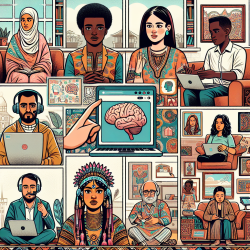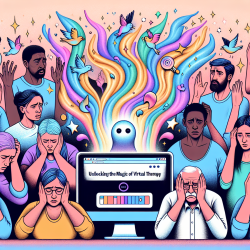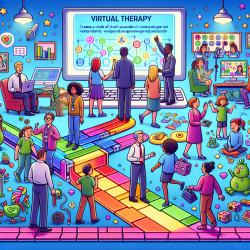Introduction
As practitioners in the field of online therapy, particularly when working with children in diverse educational settings, understanding the cultural dimensions of motivation and self-regulation is crucial. The work of Dennis M. McInerney, as explored in the research article "Culture, Motivation, Self-Regulation, and the Impactful Work of Dennis M. McInerney," provides valuable insights into how cultural factors influence learning and motivation. This blog aims to explore these insights and encourage practitioners to integrate these findings into their practice to enhance therapy outcomes for children.
The Role of Culture in Motivation and Self-Regulation
McInerney's research emphasizes the importance of considering cultural contexts when examining motivation and self-regulation. He identified that mainstream motivation theories often overlook cultural nuances, which can lead to a misalignment in educational practices. For online therapists, this means recognizing that children from different cultural backgrounds may have unique motivational drivers and self-regulatory strategies.
For instance, McInerney's work with Indigenous populations revealed that cultural values significantly impact how motivation is perceived and enacted. By understanding these cultural influences, therapists can tailor their approaches to better align with the child's cultural context, thereby enhancing engagement and effectiveness.
Practical Applications for Online Therapy
Incorporating cultural insights into online therapy can be achieved through several strategies:
- Cultural Sensitivity Training: Engage in professional development that focuses on cultural competence, ensuring that therapy practices are respectful and responsive to cultural differences.
- Personalized Goal Setting: Work with children to set goals that are culturally relevant and personally meaningful, which can enhance motivation and commitment to therapy.
- Use of Culturally Relevant Materials: Integrate culturally appropriate resources and materials into therapy sessions to foster a sense of familiarity and comfort.
- Collaborative Approach: Involve family and community members in the therapy process to ensure that cultural values and practices are respected and integrated.
Encouraging Further Research
While McInerney's work provides a foundation, there is a need for continued research into the cultural dimensions of motivation and self-regulation in online therapy contexts. Practitioners are encouraged to engage in or support research efforts that explore these areas further. By contributing to the body of knowledge, we can refine our practices and improve outcomes for children across diverse cultural settings.
Conclusion
Understanding and integrating cultural insights into online therapy practices is essential for creating effective and meaningful therapy experiences for children. By drawing on the work of Dennis M. McInerney, practitioners can enhance their cultural competence and improve therapy outcomes. For those interested in delving deeper into this topic, the original research paper offers a comprehensive exploration of these themes.
To read the original research paper, please follow this link: Culture, Motivation, Self-Regulation, and the Impactful Work of Dennis M. McInerney.










